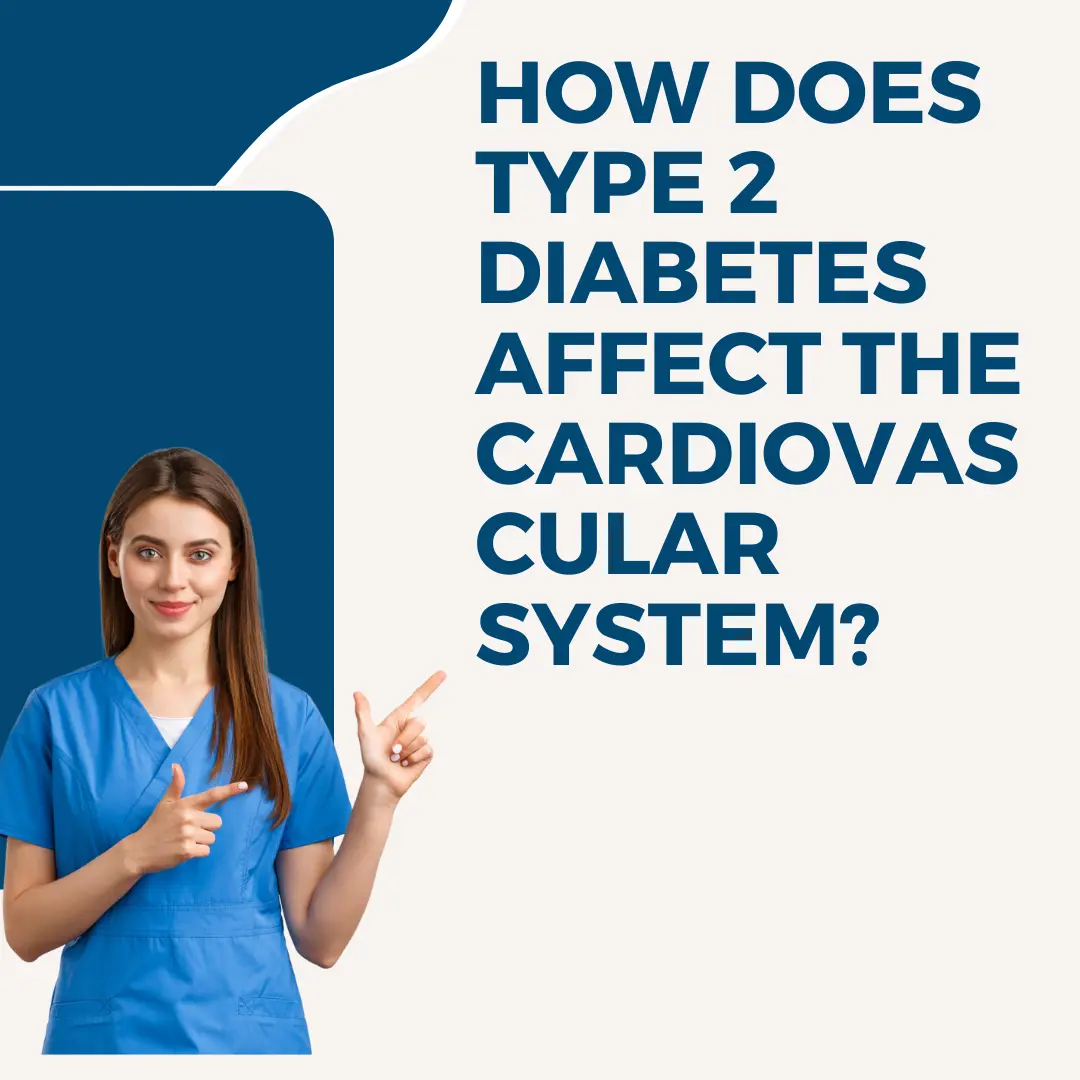How does type 2 diabetes affect the cardiovascular system?
Houston Endocrine Center2023-03-31T15:58:37+00:00If you have type 2 diabetes, knowing how the condition affects your cardiovascular system is important. You may wonder what causes heart disease in people with diabetes, how diabetes affects blood vessels, and why this is a dangerous combination. Understanding these topics will help you keep your heart healthy.

What Is Heart Disease?
Heart disease is a group of diseases that affect the heart. It’s the leading cause of death in the United States, and many different things, including smoking, high blood pressure, and high cholesterol, can cause it. Diabetes can also contribute to heart disease.
Type 2 diabetes can lead to heart disease and stroke.
Heart disease and stroke are the leading causes of death in the United States. Diabetes is a risk factor for both heart disease and stroke, which can lead to serious health complications. The following are some ways that diabetes may increase your risk of developing these conditions:
- High blood pressure – If you have type 2 diabetes, your body will produce more insulin to break down food into energy. This excess insulin causes blood vessels to become narrower (and therefore less flexible). When this happens over time, it leads to high blood pressure and other symptoms like fatigue or dizziness when standing up quickly after sitting down for a while (postural hypotension).
- High cholesterol – Having high cholesterol levels in your bloodstream increases your chances for atherosclerosis–the buildup of plaque inside the arteries causing them to narrow so much they eventually become blocked off entirely by fatty deposits called plaques or atheromas.*
Diabetes affects every system in the body, including the cardiovascular system.
Diabetes can affect every system in the body, including the cardiovascular system.
The heart and blood vessels are part of your circulatory system, delivering oxygen-rich blood to all body parts. The heart pumps this blood through arteries that carry it away from your heart and throughout your body. Arteries also bring oxygen-poor (deoxygenated) blood back to be re-oxygenated by your lungs before returning to the heart for another round of circulation. When diabetes damages these structures, it increases risk factors for:
- Heart disease
- Stroke (a type 1 diabetic has a one in four chance of having a stroke within ten years)
Diabetes increases your risk of stroke.
Diabetes increases your risk of stroke and brain attack. Stroke is a major cause of death and disability in the United States. It can be prevented with lifestyle changes and medications that reduce blood pressure and cholesterol levels, such as statins.
Diabetes raises your chances of having a stroke by increasing the likelihood that you’ll develop high blood pressure (hypertension), heart disease, or high cholesterol levels–all of which increase your chances of having another heart attack or dying from cardiovascular disease if you already have diabetes.
A stroke occurs when blood flow to part of your brain stops for more than six minutes; this causes brain cells to die because they aren’t getting enough oxygen-rich blood supply through arteries that feed them nutrients needed to stay alive.
Cardiovascular disease and some cancers can be worsened by diabetes.
Cardiovascular disease and some cancers can be worsened by diabetes.
- Cardiovascular disease: Diabetes is a risk factor for cardiovascular disease (CVD), the leading cause of death worldwide. CVD includes heart attacks, strokes, high blood pressure, atherosclerosis (a buildup of fatty substances in artery walls), and peripheral arterial disease (PAD). PAD occurs when poor circulation restricts blood flow to your legs or arms, resulting in pain when you walk or exercise.
- Some cancers: Diabetes increases the risk of both kidney cancer and bladder cancer; however, it’s unclear whether these cancers are directly linked to diabetes or if they’re caused by another condition related to it, like obesity or high blood pressure
Diabetes needs proper treatment.
Diabetes is a serious disease that affects the whole body, including the cardiovascular system. You must manage and control your diabetes by following your doctor’s advice and taking medications as prescribed.
Diabetes can be managed through diet, exercise, and medication. Diet changes include:
- Reducing fat intake.
- Increasing fiber.
- Eating more fruit.
- Drinking sugar-free beverages instead of sweetened drinks like soda or juice.
- Limiting salt intake (sodium).
Exercise helps control blood sugar levels by increasing insulin sensitivity in muscles, thereby reducing glucose production by the liver.
Do you know How does the hypothalamus control pituitary secretion?
Conclusion
Diabetes is a serious disease that needs proper treatment. If you have diabetes, you must see your doctor regularly and follow their recommendations for managing your condition.
